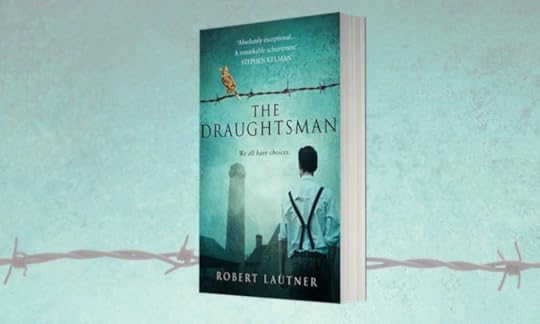I read recently, from a blogger, how authors need to talk about their old books, or perhaps their “previous” books is a better way of looking at it, because their publishers sure as hell won’t. I never thought about this before but it’s true. To your publisher the most important book is your last, the one out now, so the only person who’s going to talk about your other work is you. They have a point.
I often think about my work as done and done. I’m always concentrating on the next. The past is past, but I also should consider selling my old work too. I’m proud of it, it’s good stuff and it took years of my life to do. So I’m reflecting now.
Before Quint there was the pandemic. I didn’t write during that time. My last novel was published in 2018. The Draughtsman. I think I wrote it from about 2014 (when I was finishing Quint) and I think it was finished in 2016. It’s my largest book and I can’t reach up and grab it to check but it’s pretty thick looking at it from here.

I’m proud to say it was very well received and was shortlisted for the Walter Scott Historical fiction prize. But it was a difficult book to categorize.
I suppose it fit into the “Good German” narrative, by which I mean it centred on a man who helped design the ovens for the concentration camps but wasn’t evil himself. He was doing his job. When I look at it now it feels like I didn’t write it, it feels like it was written decades ago and, admittedly it’s written in a strange staccato style as if translated from the German directly without correcting syntax or sentence structure which makes it a studious read. It might become the book I leave behind. I’ve since found out it has made its way into some university courses (but then someone also did their thesis on my pirate novels which was a bit weird). But the subject is just that wrong side of being comfortable enough and not sentimental or maudlin enough to warrant huge success. It feels just pathetic enough to be true.
Before that came The Road To Reckoning (which I wanted to call The Wooden Paterson but it was changed). This was the book which got me noticed as a more “literary” writer rather than writing adventure. Although it’s often called a Western the story never gets out of Pennsylvania and is set in 1836. It’s the only book I’ve had optioned for a movie and the first one written as Robert. It’s one of those stories (and it is a story in the purest form) that you can give to your children and your parent and they’ll both get something out of it. I’ve had nothing but praise from it. It’s fucking amazing.

Before that I was writing my Pirate Devlin novels, four in total but more were planned, and I might finish them one day. Devlin was the first book I ever wrote and I didn’t have a drawer full of other unpublished work. The Devlin novels are the only ones where I get actual letters from fans all over the world, actual mail, and this amazes me that readers are willing to put pen to paper and seek me out. Mostly because I treated pirates as they were and not as a fantasy (my initial passion was to write against the Disney supernatural approach from the movies) and because pirates can be so well used to reflect a very modern anti-establishment philosophy and rhetoric for today’s society. Pirate fans are very much a sub-culture. I was a punk and a Goth when I was younger and I guess I never grew out of it. Piracy is in my blood, although I’m not as angry as I used to be, thankfully.

Anyway, that’s me shouting out my other work. Take a look. I need the money.
 newest »
newest »
 newest »
newest »
 Having read The Draughtsman and The Road To Reckoning, I recommend both. I would categorize The Draughtsman alongside The Undertaking by Audrey Magee, The Dynamite Room, or Devastation Road by James Hewitt. You'll find The Draughtsman a worthwhile read if you enjoyed any of those.
Having read The Draughtsman and The Road To Reckoning, I recommend both. I would categorize The Draughtsman alongside The Undertaking by Audrey Magee, The Dynamite Room, or Devastation Road by James Hewitt. You'll find The Draughtsman a worthwhile read if you enjoyed any of those.






